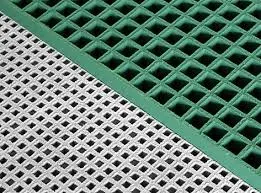
-
 Afrikaans
Afrikaans -
 Albanian
Albanian -
 Amharic
Amharic -
 Arabic
Arabic -
 Armenian
Armenian -
 Azerbaijani
Azerbaijani -
 Basque
Basque -
 Belarusian
Belarusian -
 Bengali
Bengali -
 Bosnian
Bosnian -
 Bulgarian
Bulgarian -
 Catalan
Catalan -
 Cebuano
Cebuano -
 China
China -
 China (Taiwan)
China (Taiwan) -
 Corsican
Corsican -
 Croatian
Croatian -
 Czech
Czech -
 Danish
Danish -
 Dutch
Dutch -
 English
English -
 Esperanto
Esperanto -
 Estonian
Estonian -
 Finnish
Finnish -
 French
French -
 Frisian
Frisian -
 Galician
Galician -
 Georgian
Georgian -
 German
German -
 Greek
Greek -
 Gujarati
Gujarati -
 Haitian Creole
Haitian Creole -
 hausa
hausa -
 hawaiian
hawaiian -
 Hebrew
Hebrew -
 Hindi
Hindi -
 Miao
Miao -
 Hungarian
Hungarian -
 Icelandic
Icelandic -
 igbo
igbo -
 Indonesian
Indonesian -
 irish
irish -
 Italian
Italian -
 Japanese
Japanese -
 Javanese
Javanese -
 Kannada
Kannada -
 kazakh
kazakh -
 Khmer
Khmer -
 Rwandese
Rwandese -
 Korean
Korean -
 Kurdish
Kurdish -
 Kyrgyz
Kyrgyz -
 Lao
Lao -
 Latin
Latin -
 Latvian
Latvian -
 Lithuanian
Lithuanian -
 Luxembourgish
Luxembourgish -
 Macedonian
Macedonian -
 Malgashi
Malgashi -
 Malay
Malay -
 Malayalam
Malayalam -
 Maltese
Maltese -
 Maori
Maori -
 Marathi
Marathi -
 Mongolian
Mongolian -
 Myanmar
Myanmar -
 Nepali
Nepali -
 Norwegian
Norwegian -
 Norwegian
Norwegian -
 Occitan
Occitan -
 Pashto
Pashto -
 Persian
Persian -
 Polish
Polish -
 Portuguese
Portuguese -
 Punjabi
Punjabi -
 Romanian
Romanian -
 Russian
Russian -
 Samoan
Samoan -
 Scottish Gaelic
Scottish Gaelic -
 Serbian
Serbian -
 Sesotho
Sesotho -
 Shona
Shona -
 Sindhi
Sindhi -
 Sinhala
Sinhala -
 Slovak
Slovak -
 Slovenian
Slovenian -
 Somali
Somali -
 Spanish
Spanish -
 Sundanese
Sundanese -
 Swahili
Swahili -
 Swedish
Swedish -
 Tagalog
Tagalog -
 Tajik
Tajik -
 Tamil
Tamil -
 Tatar
Tatar -
 Telugu
Telugu -
 Thai
Thai -
 Turkish
Turkish -
 Turkmen
Turkmen -
 Ukrainian
Ukrainian -
 Urdu
Urdu -
 Uighur
Uighur -
 Uzbek
Uzbek -
 Vietnamese
Vietnamese -
 Welsh
Welsh -
 Bantu
Bantu -
 Yiddish
Yiddish -
 Yoruba
Yoruba -
 Zulu
Zulu
frp panel
Understanding FRP Panels A Versatile Solution for Modern Applications
Fiber Reinforced Polymer (FRP) panels have emerged as a revolutionary solution across various industries due to their unique properties and versatility. As the world seeks materials that offer strength, durability, and resistance to corrosion, FRP panels have carved out a significant niche in construction, automotive, aerospace, and other sectors.
What are FRP Panels?
FRP panels are composite materials made from a polymer matrix reinforced with fibers, typically glass, carbon, or aramid. This fusion of materials results in panels that possess exceptional mechanical properties such as high tensile strength, low weight, and impressive resistance to environmental factors like moisture, chemicals, and UV radiation. The integration of fibers enhances the overall performance of the polymer, making FRP panels not only robust but also lightweight—a critical factor in many applications.
Advantages of FRP Panels
1. Lightweight One of the most significant advantages of FRP panels is their weight. They are considerably lighter than traditional materials like steel or aluminum, making them easier to handle, transport, and install. This characteristic is particularly beneficial in applications where weight is a crucial factor, such as in aircraft design.
2. Corrosion Resistance FRP panels resist corrosion much better than metals exposed to harsh environments. This property extends the lifespan of the panels and reduces maintenance costs, making them an economical choice over time.
3. Thermal Insulation FRP panels offer excellent thermal insulation properties, which can contribute to energy savings in buildings. This characteristic enhances the comfort of indoor environments while reducing heating and cooling costs.
4. Aesthetic Flexibility Available in a variety of colors and finishes, FRP panels can be designed to meet aesthetic demands while still providing functional benefits. This versatility allows architects and designers to implement innovative solutions in modern structures.
5. Ease of Fabrication The manufacturing process for FRP panels is relatively straightforward, allowing for customization in shape and size. This adaptability makes it possible to create panels for a broad range of applications, from cladding and roofing to tanks and ducts.
frp panel

Applications of FRP Panels
The applications of FRP panels are extensive and varied
- Construction In the construction industry, FRP panels are used for roofing, wall cladding, and flooring systems. Their lightweight nature coupled with durability makes them ideal for high-rise buildings and structures requiring seismic retrofitting.
- Automotive In the automotive sector, FRP panels are utilized to produce car bodies, components, and interior features. The combination of low weight and high strength contributes to improved fuel efficiency and enhanced performance.
- Marine The marine industry benefits from FRP panels due to their resistance to saltwater and maritime environments. They are often used in boat hulls, decks, and interiors, providing durability while minimizing weight.
- Aerospace In aerospace applications, FRP materials are used in structures where strength-to-weight ratio is critical, including aircraft components such as wings and fuselage sections.
- Industrial Environments FRP panels are utilized in chemical plants, wastewater treatment facilities, and food processing plants, where resistance to chemicals and ease of cleaning are vital.
Conclusion
As industries continue to evolve and demand materials that offer both performance and sustainability, FRP panels represent a forward-thinking solution. Their lightweight and corrosion-resistant properties, coupled with aesthetic flexibility and ease of fabrication, position them as exemplary materials for a variety of applications. Whether in constructing a new building, manufacturing vehicles, or developing innovative aerospace components, FRP panels are paving the way for a more efficient and durable future. As technology progresses, one can only anticipate even more advanced iterations of FRP materials, further expanding their applications and benefits in modern society.









